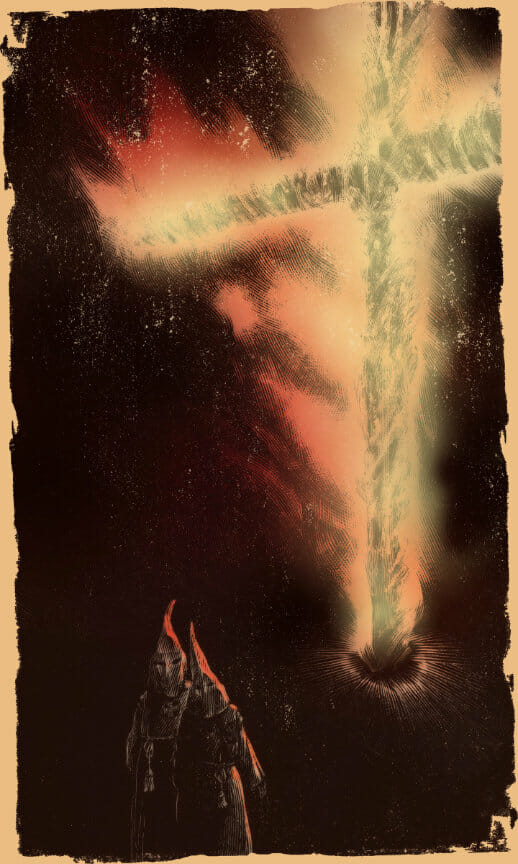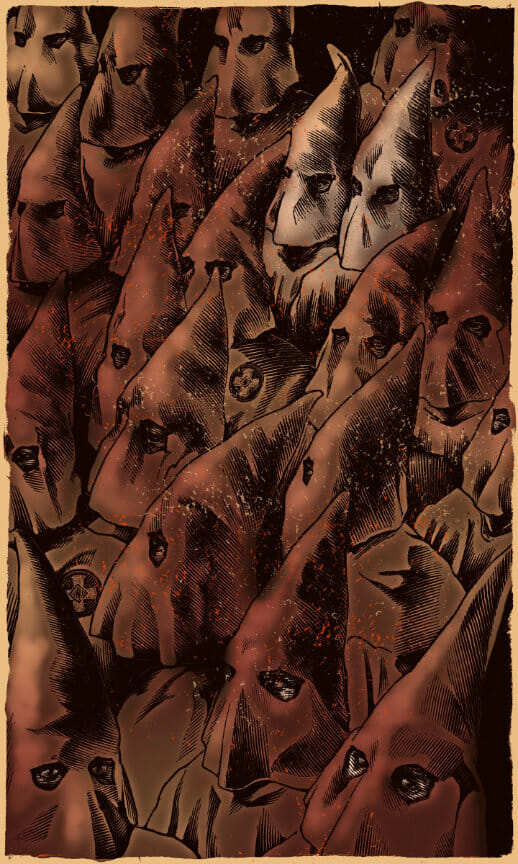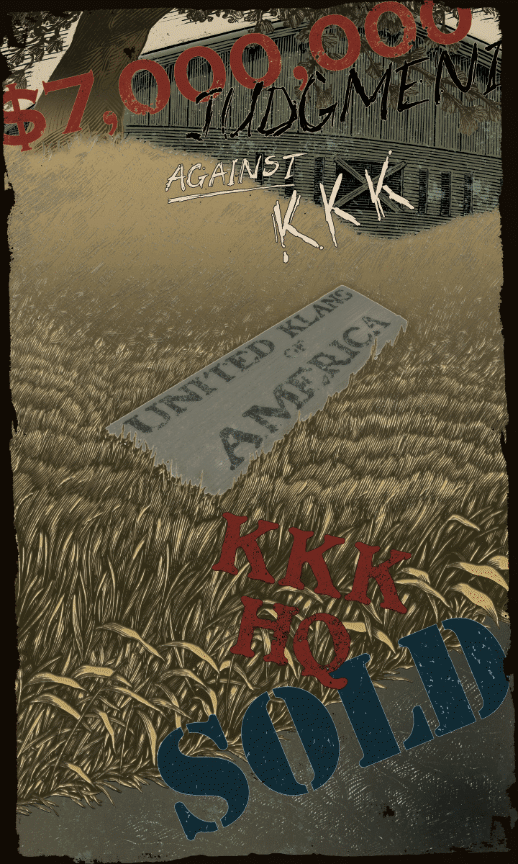The Klan
Donald v. United Klans of America, 1987

Criminal Acts
On March 20, 1981, a young black man named Michael Donald was brutally beaten, had his throat cut, and was left hanging from a tree on a suburban street in Mobile, Alabama. Two white men who were members of the United Klans of America, Henry Hays and Tiger Knowles, were convicted of his murder.

Civil Action
In 1984, the Southern Poverty Law Center filed a lawsuit for violation of the Civil Rights Act and for the commission of the torts of assault and battery on behalf of Beulah Mae Donald, Michael's mother, seeking $10 million in damages from the United Klans of America (UKA). To win, the plaintiff had to prove a civil conspiracy between the two killers, the local chapter of the UKA, and the UKA's national organization.


The Evidence
Evidence showed that the local UKA chapter had met two nights before the lynching. The group discussed the trial of a black man accused of murdering a white man. Henry Hays, who later participated in Michael Donald’s murder, declared that "a n----- ought to be hung by the neck until dead to put them in their place."
The evidence also showed a link between the local and national UKA organizations in the form of an official charter, bearing the UKA's corporate seal, which authorized the local chapter to conduct business in the name of the national organization. There was also evidence that the national organization promoted and instigated violent behavior against black citizens.
One piece of evidence was a drawing from a 1979 Klan publication called the Fiery Cross. The drawing depicted the lynching of a black man, with an accompanying caption that said, "ALL WHITES SHOULD WORK TO GIVE THE BLACKS WHAT THEY DESERVE!"
The Verdict
Beulah Mae Donald won in court, and the UKA and its local chapter were ordered to pay $7 million in damages. The verdict brought an end to the activities of the UKA, and in a twist of fate, the UKA turned over its national headquarters to Mrs. Donald to help satisfy the judgment.
The Donald v. United Klans of America case is significant in that it used the tort law remedy as a way to put a hate group out of business. While criminal penalties can punish individuals who commit hate crimes, they leave the organizations that incite such crimes free to continue promoting violence. Tort lawsuits provide a way to shut down such groups.
Questions for thought
Should every organization be responsible for all of the actions of its members? What kinds of actions should they be responsible for? What kinds of actions should they not be responsible for?
What if a trade union member on strike destroys property of the employer, or injures someone crossing a picket line? Should the union be liable? What if the union officials had specifically urged non-violence? What if they had said nothing about violence? What if they had publicly said that violence might happen in response to unfair conditions?
